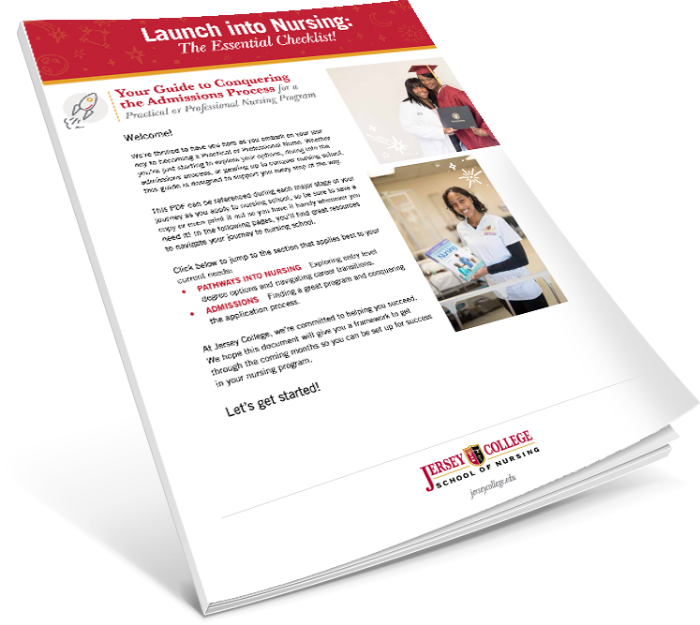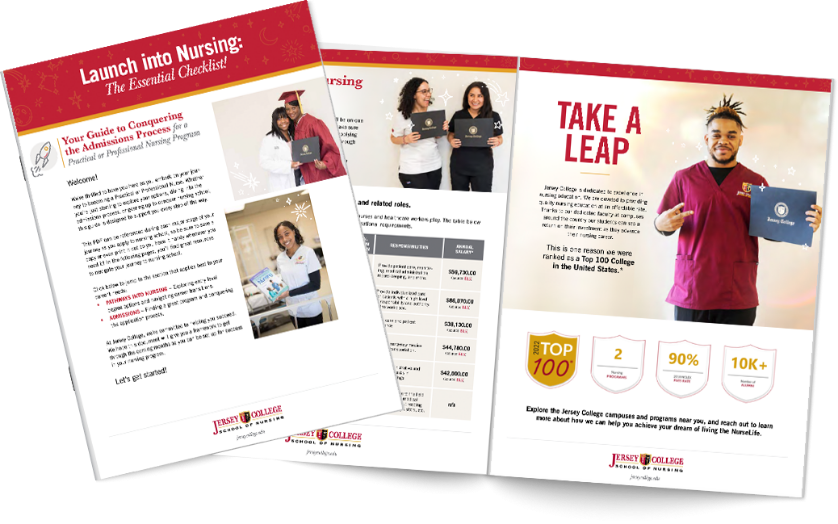
How to become an LPN: A comprehensive Guide to Starting Your Nursing Career
Education and Training Requirements for Licensed Practical Nurses
To become an LPN, there are specific education and training requirements you'll need to meet. These include the following:
- Practical Nursing (“LPN”) certificate or diploma program - You'll need to complete an approved LPN certificate or diploma program. These typically take 1-2 years and include classes on patient care, nursing theory, and specialty topics like pediatrics.
- State licensing exam – You'll need to pass the NCLEX-PN exam prior to becoming licensed in your state. Most states also require an application fee and a criminal background check, though specific requirements vary.
Choosing an LPN Program
When looking for an LPN program, you may want to consider:
- Location – Be sure the program is in a convenient location that prepares you to work in your state of choice. Some programs also offer virtual options.
- Schedule options – Such as evening programs.
- School quality – Be sure to ask about the school’s PN NCLEX pass rate.
- Whether or not the school is accredited – The accreditation process requires that nursing schools meet or exceed a wide range of standards. The process is typically conducted by an outside group. Learn more on Jersey College's Accreditation and Licenses page.
- Program length and curriculum – The typical length of an LPN program is 1-2 years. Courses include both general skills classes like pharmacology and specialized ones like psychiatric nursing. See more about Jersey College's LPN program here.
- Program cost and financial aid – The cost of tuition will vary based on where in the country you are and your amount of federal financial aid. Use our Tuition Calculator to find prices in your area.
Do your research and consider a campus visit to see what classes are like and what on-campus resources are offered.
LPN Program Requirements
Once you've found the right program for you, you'll need to apply for admission. Most LPN programs require students to be 18 and have a GED or high school diploma. Nursing students must also be able to demonstrate prerequisite skills and meet certain minimum standards (the “Technical Standards”). This includes computer literacy, the ability to collect and analyze data, and basic professional communication skills.
The application process starts by taking a look at the requirements and filling out an application. Once you receive your letter of acceptance, you’ll be ready to enroll and register in classes!
- Sample Curriculum
This is an example of the curriculum for one of our LPN programs in Florida as of January 2025. For the most up to date curriculum for your campus, be sure to reach out to your local admissions representative.Course Number Course Title Theory Clinical/lab Total Term 1 NUS150 Introduction to Health Care 81.0 - 81.0 NUS151 Human Anatomy and Physiology 81.0 - 81.0 NUR150 Fundamentals of Nursing 61.0 - 61.0 NUR151 Fundamentals of Nursing Practicum - 152.0 152.0 Total Term Hours - - 375.0 Course Number Course Title Theory Clinical/lab Total Term 2 NUS152 Pharmacology 72.0 - 72.0 NUR163 Adult Nursing I 127.0 - 127.0 NUR153 Adult Nursing I Practicum - 176.0 176.0 Total Term Hours: - - 375.0 Course Number Course Title Theory Clinical/lab Total Term 3 NUR157 Maternal and Newborn Nursing 79.0 - 79.0 NUR158 Maternal and Newborn Nursing Practicum - 48.0 48.0 NUR159 Pediatric Nursing 79.0 - 79.0 NUR160 Pediatric Nursing Practicum - 48.0 48.0 NUR164 Psychiatric Nursing 79.0 - 79.0 NUR165 Psychiatric Nursing Practicum - 48.0 48.0 Total Term Hours - - 381.0 Course Number Course Title Theory Clinical/lab Total Term 4 NUR161 Adult Nursing II 178.0 - 178.0 NUR162 Adult Nursing II Practicum - 192.0 192.0 Total Term Hours - - 370.0 Total accumulated hours 837.0 664.0 1501.0
Preparing for the NCLEX-PN
The National Council Licensure Examination for practical nurses, or NCLEX-PN, is taken after graduation from an LPN program. It's how to become an LPN. Jersey College's LPN program prepares students with the skills and knowledge necessary to complete the NCLEX-PN exam.
The exam is a computer-adaptive test that will get harder when you get an answer right and easier when you get a question wrong. Test takers are allotted five hours to take the exam with two breaks.
The NCLEX-PN is a challenging exam, but good nursing programs will prepare you for success! In 2021, about 80% passed the exam on the first attempt. You can also find and review study guide resources online, such as those found in our NCLEX Exam Guide.
Learning and retaining information from your LPN program is the easiest path to NCLEX-PN success!
Applying for Licensure
After you pass the NCLEX-PN exam, you still need to apply for a license to practice nursing. Each state has its own process, application, and deadlines, but there are a few commonalities about how to officially become an LPN:
- Make sure you meet state licensing requirements – Be sure to review your state's requirements.
- Submit an application and any fees – You'll have to submit a paper or online application and pay a fee (generally around $50-$100 depending on the state).
- Prepare for a background check – Many states will perform a criminal background check on you before they issue a PN license.

FREE Essential Guide to Nursing School: Get Accepted, Survive, and Thrive!
Responsibilities and Duties of an LPN
LPN duties vary from state to state and also depend on whether the nurse holds additional certifications.
This list is intended to be a brief overview of duties, but is not an exhaustive list applicable to every state
- Patient care and monitoring – LPNs may bathe patients, change bandages, check vital signs, and provide bedside care to make sure patients are comfortable.
- Medication administration – LPNs may sort and administer oral medications, give immunizations and injections, monitor patients for medication side effects, and more. Permitted duties vary significantly by state, and additional certifications may be required in order to perform certain procedures.
- Documentation and record-keeping – Practical nurses often take patient histories, monitor fluid and food intake, and enter patient records into the hospital database.
Finding Your First LPN Job
After graduating and passing your NCLEX, you can start looking at job listings and submitting your resume. Jersey College offers Career Services for both students and alumni to prepare for careers in nursing. You can also use connections you’ve made through clinical or volunteer opportunities as a starting point for your job search.
- Write a strong resume – A resume is your first introduction to a potential employer and should include relevant highlights from your school and work experience. There's plenty of resume advice available online or through a career center.
- Exploring job opportunities – As you might imagine, many LPNs work in hospitals. But there are many other job opportunities, as well: you might work in home health care, public schools, doctors’ offices, mental health facilities, jails and prisons, private homes, and more. Take a look on major job sites to see what your options are.
- Networking and building professional relationships – Networking as an LPN will help you find more jobs and allow you to create a support system so you can excel.
Jersey College also offers Career Services for students and alumni to prepare for careers in nursing. You could use connections you’ve made through clinicals and volunteer opportunities as a starting pointing for your job search. Find more job resources on the Jersey College Career Services page.
Working Conditions
LPNs typically work 8 or 12-hour shifts. These shifts are generally organized as either 8-hour shifts five times per week, or 12-hour shifts three times per week. LPNs typically have opportunities for overtime, especially in hospitals.
In an 8-hour shift, you may be on your feet or walking for 6 hours or more. You'll also need to lift heavy objects and may be called on to help move patients.
Salary and Benefits
Note: The salary and informational data presented here is aggregated data provided by the Bureau of Labor Statistics and are provided for information only and are not a promise of employment nor attainment of any certain wage. Best efforts have been made to ensure the information is accurate according to the Bureau of Labor Statistics. Individuals are advised to visit the Bureau of Labor Statistics website for the latest information.
According to the most recent figures from the Bureau of Labor Statistics, the average LPN earns $48,070 a year. That amount can vary depending on what kind of facility you work at and where in the country you are.
Most full-time LPN jobs, especially at larger hospitals, offer benefits like health insurance, retirement plans, and PTO.

Sign up to get new articles in your inbox and stay updated on our nursing programs.
Career paths for LPNs
Once you have become established as an LPN, you’ll also have the opportunity to continue advancing in your career. While not a requirement, there is plenty of room to grow for those who wish to.
- Learn on the job – Within a large organization like a hospital, there's often plenty of room for an LPN to grow. Many nurses find that they can acquire different skills by working on different rotations.
- Acquire new specializations – LPNs can gain additional certifications in things like long-term care or palliative care.
- Pursue a higher degree in nursing – If you're interested in gaining more responsibilities and increasing your earning potential, you can earn an associate's or bachelor's degree in nursing. Jersey College offers an LPN to RN bridge program for those who want to jump-start their advancement to the Registered Nurse role. Starting off as an LPN can also help you gain the practical knowledge and experience that other RN candidates might be missing.

Frequently Asked Questions
What is a practical nurse?
A practical nurse provides basic patient care like feeding patients, checking vital signs, and keeping track of important records. They support doctors and RNs in carrying out patient care plans.
What is the difference between an LPN and an RN?
RNs require an associate's or bachelor's degree, while LPNs just need a 1-2 year non-degree program. In terms of work, LPNs are more task-oriented, while RNs play a bigger role in developing and administering patient care plans.
What are common responsibilities of LPNs?
LPNs provide patient care, administer medication, and help keep detailed patient records.
How much do LPNs make?
According to the Bureau of Labor Statistics, the median annual wage for licensed practical and licensed vocational nurses was $48,0701 in 2021. Some factors that may play a role in salary can include the employer, type of industry, location, and experience level.
What are the education and certification requirements to become an LPN?
LPNs need to complete an approved nursing program, pass the NCLEX-PN exam, and pass a criminal background check. There may be additional requirements depending on your state.
How long does it take to become an LPN?
LPN training programs typically take 1-2 years.
Jersey College offers a day PN program that is approximately 12 months long and an evening PN program that is approximately 18 months long.
Are LPNs in high demand?
According to the Bureau of Labor Statistics, the employment rate for LPNs is projected to grow 9 percent between 2020 and 2030. The need for LPNs as well as the overall need for healthcare services is expected to increase as the population ages.
Program length is subject to change and is determined based on a number of factors, including, but not limited to: (i) pace of completion, (ii) quantity of credits taken per term, (iii) repeats of coursework, and (iv) leaves.
Find Your Campus
Ready to start your LPN journey? Contact your local Jersey College campus or learn more about how to become an LPN by taking a look at our admission requirements.
Jersey College campuses that have an on-campus LPN program include:
Reach out to begin your journey toward becoming a licensed nurse.

FREE Essential Guide to Nursing School: Get Accepted, Survive, and Thrive!
